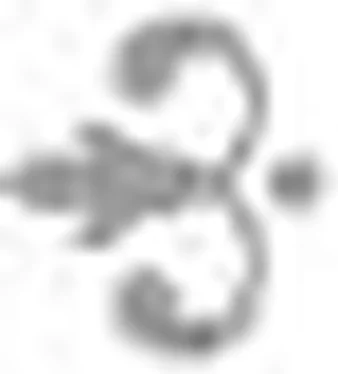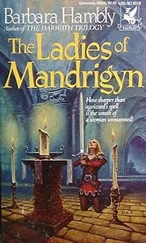Uncle Hercules— The Washington family cook, trusted and much-favored slave who took the opportunity of being in the North to escape to freedom, waiting to do so until the Washingtons were on their way back to Mount Vernon for the final time in 1796.
Ona Judge b. 1778 (?)—[Oney] Martha’s beloved and trusted slave maidservant who escaped in Philadelphia to freedom in the North, to Martha’s speechless indignation.
Thomas Law— Married Eliza Custis in 1796. Was about twenty years older than she, an English India merchant who had at least three illegitimate sons by Indian women, one of whom he brought with him and sent to Harvard. He and Eliza were divorced in 1810.
Tobias Lear 1762 (?)–1816—George’s secretary and tutor to the Custis children. A New Hampshire man and Harvard graduate, he was introduced to Washington at the end of the Revolution. After the death of his first wife Pollie, he married Martha’s favorite niece Fanny (Bassett); upon Fanny’s death, he married another of Martha’s nieces, Fanny Henley. After Washington’s death, he organized the Presidential papers (and, it was rumored, selectively destroyed some that reflected badly on a quarrel between Washington and Thomas Jefferson): Jefferson appointed him First Consul to Saint-Domingue, and then Consul General to the Barbary States (where he made a great deal of money in bribes). Returning to the United States at the outbreak of the War of 1812, Lear, who suffered from headaches and depression, shot himself in 1816.
Pollie Lear 1770–1793—Tobias Lear’s childhood sweetheart from New Hampshire. After their marriage she acted as Martha’s secretary. She was one of the first casualties of the yellow fever epidemic in Philadelphia in the summer of 1793.
General Charles Lee 1731–1782—Continental general and soldier of fortune, he was one of Washington’s rivals for the position of Commander in Chief.
Lawrence Lewis— Son of George’s sister Betty; married Nelly Custis in 1799. A hypochondriac who later in life became dependent upon opiates.
James Monroe 1758–1831—Virginia planter, officer in the Continental Army, U.S. Senator, Governor of Virginia, fifth President of the United States. Was the third U.S. President to die on the Fourth of July.
Thomas Peter— Married Pattie Custis in 1795. Their house in Georgetown still stands.
Dr. David Stuart— Second husband of Jacky Custis’s widow Eleanor; father, by her, of many, many children.
George Washington 1732–1799—Virginia planter, Commander in Chief of the Continental Army during the Revolution, and first President of the United States.
Martha (Dandridge) (Custis) Washington 1731–1802—[Patsie] First First Lady. Formerly married to Daniel Custis.
George Augustine Washington 1763–1793—[Augustine] Son of George’s brother Charles, George’s secretary and overseer of Mount Vernon, first husband of Martha’s niece Fanny. Died of tuberculosis.
George Steptoe Washington 1771–1809—[Steptoe] Son of George’s brother Sam, of Harewood Plantation. Married Lucy Payne, sister of Dolley Madison.
Harriot Washington b. 1777—Steptoe’s younger sister. At their father’s death, she was taken to live at Mount Vernon for a time, while her brothers were placed in boarding-school.
ABIGAIL
Abigail (Smith) Adams 1744–1818—Second First Lady, and mother of the sixth President of the U.S. Middle daughter of the minister of Weymouth, Massachusetts.
John Adams 1735–1826—Lawyer, member of the Continental Congress, Minister to France, and first U.S. Minister to England, second President of the United States.
Nabby (Adams) Smith 1765–1813—[Abigail] Daughter of John and Abigail Adams, married Colonel William Smith in England in 1786.
John Quincy Adams 1767–1848—[Johnny, Hercules] Oldest son of John and Abigail Adams, U.S. Minister to Berlin, helped negotiate the Treaty of Ghent (which ended the War of 1812), sixth President of the United States, afterwards Representative from Massachusetts, and lawyer who defended the mutinous slaves of the slave-ship Amistad . In 1848 he suffered a stroke on the floor of the House of Representatives, and died in the Speaker’s Chamber shortly thereafter.
Charley Adams 1770–1800—Second son of John and Abigail Adams. He married the sister of his sister Nabby’s husband; died of acute alcoholism at the age of thirty.
Thomas Adams 1772–1832—Third son of John and Abigail Adams.
Jack Briesler— [John] Adams family servant. Married Abigail’s faithful maid, Esther Field.
Granny Susie (Susanna Boylston Adams) Hall 1709–1797—Married John Hall after the death of John Adams’s father in 1761. Lived long enough to see her son elected President; died about a month after his inauguration. Abigail described her as the mainstay of the entire family.
Peter Adams— John’s brother and next-door neighbor in Braintree. A third brother, Elihu, joined the Continental militia at the siege of Boston and died in camp.
Samuel Adams 1722–1803—John’s second cousin (both were great-grandsons of Joseph Adams of Braintree, Mass.); master propagandist, radical revolutionary, signer of the Declaration of Independence, and eventually, first Lieutenant-Governor and then Governor of Massachusetts.
Michael Boyne*— Sam Adams’s law clerk, Irish, anti-Federalist, and courted Abigail’s niece Louisa Smith.
Mary (Smith) Cranch 1741–1811—Older sister of Abigail Adams.
Esther Field— Abigail’s faithful maid. Became pregnant by Jack Briesler while in England, married him there, but bore and lost the baby on the voyage home. Briesler and Esther remained in the Adams family’s service throughout their lives.
Elbridge Gerry 1744–1814—John’s erratic and independent fellow delegate to the Continental Congress, a signer of the Declaration of Independence and a lifelong supporter of John Adams. It was the Republican redistricting of Massachusetts, while Gerry was Governor, in 1812, to rearrange the state so as to have more Republican senators, that gave rise to the term “gerrymandering.”
John Hancock 1737–1793—Merchant, tea smuggler, patriot, first signer of the Declaration of Independence, president of the first Continental Congress, and later Governor of Massachusetts.
Jamey Prince— Free colored servant of the Adamses.
Betsey (Smith) Shaw (Peabody) 1750–1815—Younger sister of Abigail Adams. Her parson first husband ran a school in Haverhill, where the younger two Adams boys (Charley and Tommy) were boarded for the four years Abigail was with John in France and England.
Colonel William Smith 1755–1816—John’s secretary in the American Ministry in London, married John’s daughter Nabby in 1786.
Sarah Smith 1769–1828—Colonel Smith’s younger sister, who married Charley Adams in 1794.
William Smith 1746–1787—Abigail’s good-for-nothing younger brother.
Louisa Smith 1773–1857—Daughter of Abigail’s brother William, taken into the Adams household when John and Abigail returned from England, shortly after brother William’s death. She remained unmarried, as Abigail’s companion, until Abigail’s death in 1818.
SALLY
Aunt Martha Carr 1746–1811—Thomas Jefferson’s youngest sister, who married his best friend Dabney Carr in 1765. Carr died in 1773 leaving Martha with six children under the age of ten. Jefferson gave them all a home at Monticello, where Aunt Carr remained.
Читать дальше





